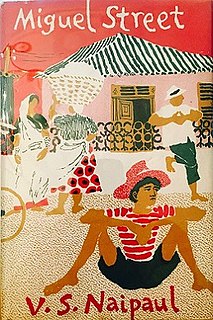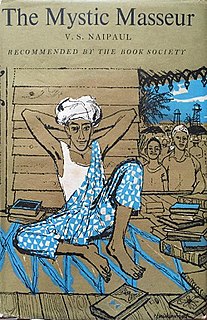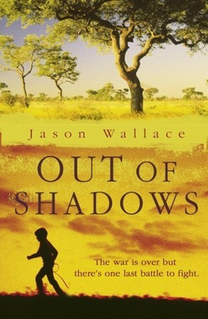The Booker Prize, formerly known as the Booker Prize for Fiction (1969–2001) and the Man Booker Prize (2002–2019), is a literary prize awarded each year for the best novel written in English and published in the United Kingdom or Ireland. The winner of the Booker Prize receives international publicity which usually leads to a sales boost. When the prize was first created, only novels written by Commonwealth, Irish, and South African citizens were eligible to receive the prize; in 2014 it was widened to any English-language novel —a change that proved controversial.
Anthony Dymoke Powell was an English novelist best known for his 12-volume work A Dance to the Music of Time, published between 1951 and 1975. It is on the list of longest novels in English.
Mark Haddon is an English novelist, best known for The Curious Incident of the Dog in the Night-Time (2003). He won the Whitbread Award, the Dolly Gray Children's Literature Award, Guardian Prize, and a Commonwealth Writers Prize for his work.

A Bend in the River is a 1979 novel by Nobel laureate V. S. Naipaul.

Miguel Street is a collection of linked short stories by V. S. Naipaul set in wartime Trinidad and Tobago. The stories draw on the author's childhood memories of Port of Spain. The author lived with his family in the Woodbrook district of the city in the 1940s, and the street in question, Luis Street, has been taken to be the model of Miguel Street. Some of the inhabitants are members of the Hindu community to which Naipaul belonged. Naipaul also draws on wider Trinidadian culture, referring to cricket and quoting a number of lyrics by black calypso singers.

In a Free State is a novel by V. S. Naipaul published in 1971 by Andre Deutsch. It won that year's Booker Prize. The plot consists of a framing narrative and three short stories – "One out of Many", "Tell Me Who to Kill", and the title story, "In a Free State". The work is symphonic, with different movements converging towards a common theme; although the theme is not spelled out, it evidently concerns the price of freedom, with analogies implicitly drawn between the three scenarios.

The Loss of El Dorado, by the Nobel Prize winner V. S. Naipaul, is a history book about Venezuela and Trinidad. It was published in 1969. The title refers to the El Dorado legend.
Dame Hilary Mary Mantel was a British writer whose work includes historical fiction, personal memoirs and short stories. Her first novel, Every Day is Mother's Day, was published in 1985. She went on to write 12 novels, two collections of short stories, a personal memoir, and numerous articles and opinion pieces.

Half a Life is a 2001 novel by Nobel laureate V. S. Naipaul published by Alfred A. Knopf. The novel is set in India, Africa and Europe. Half a Life was long listed for the Man Booker prize (2001).

The Mystic Masseur is a comic novel by V. S. Naipaul. It is set in colonial Trinidad and was published in London in 1957.

What Was Lost is the 2007 début novel by Catherine O'Flynn. The novel is about a girl who goes missing in a shopping centre in 1984, and the people who try to discover what happened to her twenty years later. What Was Lost won the First Novel Award at the 2007 Costa Book Awards, and was short-listed for the overall Costa Book of the Year Award.
Aravind Adiga is an Indian writer and journalist. His debut novel, The White Tiger, won the 2008 Man Booker Prize.
Oneworld Publications is a British independent publishing firm founded in 1986 by Novin Doostdar and Juliet Mabey originally to publish accessible non-fiction by experts and academics for the general market. Based in London, it later added a literary fiction list and both a children's list and an upmarket crime list, and now publishes across a wide range of subjects, including history, politics, current affairs, popular science, religion, philosophy, and psychology, as well as literary fiction, crime fiction and suspense, and children's titles. A large proportion of Oneworld fiction across all its lists is translated.

A Way in the World is a 1994 book by Nobel laureate V. S. Naipaul. Although it was marketed as a novel in America, A Way in the World, which consists of linked narratives, is arguably something different.

Sir Vidiadhar Surajprasad Naipaul, commonly known as V. S. Naipaul and, familiarly, Vidia Naipaul, was a Trinidadian-born British writer of works of fiction and nonfiction in English. He is known for his comic early novels set in Trinidad, his bleaker novels of alienation in the wider world, and his vigilant chronicles of life and travels. He wrote in prose that was widely admired, but his views sometimes aroused controversy. He published more than thirty books over fifty years.
The Golden Man Booker was a special one-off prize awarded in commemoration of the 50th anniversary of the Booker Prize. All of the previous 51 winning titles since the Booker's inception in 1969 were eligible.
"One out of Many" is a short story within an unconventionally formatted novel entitled In a Free State, written by V. S. Naipaul and originally published by André Deutsch in 1971. The protagonist, Santosh, is forced to give up his familiar life inside the stratified castes of India to move with his employer, now an Indian ambassador, to Washington D.C during the civil rights protests and commensurate "hippie era". Themes developed in the story reflect Santosh's abrupt displacement from a comfortable, life-long acclimation in India, to an alien environment in the United States, where his beliefs, perceptions, and sense of belonging are upended.

Out of Shadows is a 2010 children's historical novel by Jason Wallace, published by Andersen Press on 28 January 2010. Set in 1980s Zimbabwe, the story follows white teenager Robert Jacklin at a prestigious boarding school as he confronts bullying, anti-black racism, his own morality and the political instability of the time. His debut novel, it is partly inspired by Wallace's own experiences attending a boarding school in Zimbabwe after the civil war. The novel was rejected by publishers one hundred times before being published by Andersen Press. The novel received favourable reviews and won the 2010 Costa Book Award for Children's Book, the 2011 Branford Boase Award and the 2011 UKLA Book Award. It was also shortlisted for the 2010 Booktrust Teenage Prize and the 2011 Carnegie Medal.

The 2001 Nobel Prize in Literature was awarded to the Trinidadian-born British writer Vidiadhar Surajprasad Naipaul (1932–2018), commonly known as V. S. Naipaul, "for having united perceptive narrative and incorruptible scrutiny in works that compel us to see the presence of suppressed histories." The Committee added: "Naipaul is a modern philosopher carrying on the tradition that started originally with Lettres persanes and Candide. In a vigilant style, which has been deservedly admired, he transforms rage into precision and allows events to speak with their own inherent irony." The Committee also noted Naipaul's affinity with the novelist Joseph Conrad:
Naipaul is Conrad's heir as the annalist of the destinies of empires in the moral sense: what they do to human beings. His authority as a narrator is grounded in the memory of what others have forgotten, the history of the vanquished.











